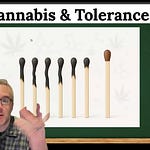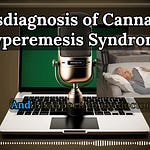Sleep Science Meets Cannabis: What You Need to Know
Why Sleep Matters More Than Ever
In the zigzag hustle of modern life, sleep feels like the ultimate luxury—always slipping just out of reach. Stress, endless screen time, and the pressures of daily living have left many of us chasing a good night’s rest like it’s some mythical creature atop a giant treasure of gold. Meanwhile, out from under the pile of random pills, naturopathic voodoo promises, and near universal frustration, cannabis has burst onto the scene, with about half of people swearing it’s their magic sleep potion, and the other people slapping at the air that it’s all snake oil and bologna. But is it really that simple? It is a magic cure and half the people out there are sniffing the wrong salts, or it’s all placebo affect and the universal naysayers actually got this one right? Or are we dealing with a far more nuanced bedtime story? Let me peel back the covers on this complex relationship between cannabis and sleep to uncover the science, myths, and practical truths.
Key Insights and Takeaways from this Podcast:
Cannabis and the Sleep-Wake Cycle
Sleep isn’t just a passive state—It’s a restorative process that regulates brain and body functions, consolidates memory, supports immune health, and maintains overall homeostasis by cycling through distinct stages of rest and activity. This, friends, is orchestrated by a finely tuned system with many distinct components, involving our circadian rhythm, hormones, and even temperature regulation. Recent research suggests the endocannabinoid system (ECS) plays a HUGE role in this process, helping to regulate sleepiness and wakefulness. It’s a natural synergy, but adding external cannabinoids, like THC or CBD, can tip the balance. You guessed it - either for good or for bad, depending on you, the product, and the stuff in between (“set & setting” from chapter 5, pg 97.)The THC Factor
THC, the cannabinoid that steals the spotlight, has mixed reviews here.In low doses, evidence suggests it may help people fall asleep faster.
In high doses or with sustained regular use, THC can disrupt deep (REM) sleep stages and lead to tolerance, meaning you might need more to get the same effect. (For more details on stages: CaplanCannabis - Sleep Stages)
A 2024 study highlighted that moderate doses of THC may not impair cognition the next day, but its long-term effects are still something the research community is squabbling about. (Be a fly on the wall of the sleep research, here)
CBD: The Subtle Helper
Unlike THC, CBD is the more crafty cannabinoid. It doesn’t sedate only by touching receptors directly. Instead, it adds a stealthier approach, indirectly calming anxiety and boosting anandamide, our body’s natural “chill pill.” This indirect impact, and it’s power to relax muscle tissues, makes it particularly helpful for individuals whose sleeplessness stems from racing thoughts or tension, or for folks who like to keep their thinking and emotional baseline firmly grounded without any highs. However, effects of CBD on sleep are less immediate and more about supporting relaxation and helping to support circadian rhythm.How you Take products Matters
The way you consume cannabis can drastically influence its effects:Smoking/Vaping: Fast-acting, but shorter-lived. Best for falling asleep (in the way a sledgehammer might do the trick too).
Edibles: Slower to kick in, but effects tend last longer—better for staying asleep, but many edibles are made with sugar - which stirs a sugar rush for some folks, and withdrawal from sugar can wake us up (sugar withdrawal with dopamine rebound is a real thing - so lean toward products made with more oil/butter than sugar where possible!)
Tinctures/Oils: Versatile, allowing for precise dosing and tailored effects, but undeniably awkward to drip in a mirror in the right places & amounts. Still, being able to add-a-drop is useful for those who build cannabis tolerance, which is anyone human.
Each method has trade-offs, and finding the right one might feel like solving your own sleep puzzle. (For those who give a collective side-eye to the “medical” part of the medical cannabis industry, this is what they’re supposed to help with - guiding individuals to personalized products.)
Not All Strains Are Equal
In an ideal world, a combination of cannabinoids and terpenes in a cannabis strain creates unique effects that are consistent over time. Terpenes like myrcene, found in many indica strains, are often linked to relaxation, while others might energize or induce anxiety. Understanding your body’s response to different profiles is key. And, it’s not common for strains to be inconsistent, different batch to batch, and… not even the same top of the plant to the bottom!The Sleep Gamble
While cannabis might help some, it’s not a guaranteed fix. Overuse or dependence can lead to disrupted sleep cycles, withdrawal symptoms, or grogginess. For those prone to anxiety or with a history of addiction, emotional states can overpower the effects of the plant parts and the risks might outweigh the benefits, creating lousy experiences.Don’t Ignore the Basics
Cannabis can be part of the solution, but it’s not a substitute for good sleep hygiene. Keep a consistent sleep schedule, create a calming bedtime routine, and optimize your environment with tools like blackout curtains or white noise machines. In this helpful set and setting, and in the right mindset, cannabis is much more likely to be helpful.Personalization is Paramount
Sleep is deeply personal. The same strain or product or dose that works for one person might not for another. Open conversations with healthcare providers and mindful experimentation are vital.
Looking Ahead: The Future of Cannabis and Sleep
As research progresses, cannabis products designed specifically for sleep are emerging—formulations aimed at helping you fall asleep faster, stay asleep longer, or enhance sleep quality without the dreaded next-day grogginess. While some of these products are already hitting store shelves, their effectiveness varies, as many are marketed with promises that may not yet be fully backed by rigorous science. Until research catches up and companies can deliver truly tailored solutions, these products may work wonders for some but not for everyone. In the meantime, the best approach is to explore cannabis for sleep with an expert who can guide you. Or, if that’s not within reach, a blend of curiosity, caution, and a dedication to discovering what suits your unique needs.
Sweet dreams await—if you’re ready to explore with care!
Listen to this podcast, with visuals, on YouTube:


















Share this post